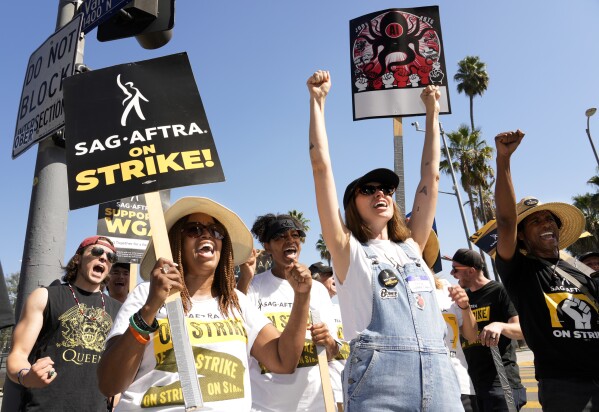The entertainment industry enters 2025 still navigating significant changes following 2023’s historic dual strikes, with production schedules and release calendars showing lasting impact across film and television.
Major studios announced revised release dates this week for several anticipated blockbusters. Warner Bros. shifted “Dune: Part Two” to March 1, 2024, while Marvel pushed multiple projects into late 2024 and early 2025, citing post-strike production delays.
Netflix reported in its December 21 shareholder letter that original content output will remain below pre-strike levels through Q2 2024, though the streaming giant has accelerated production to address content gaps. The company emphasized increased focus on international productions, which were less affected by the strikes.
The Writers Guild of America (WGA) published its first comprehensive post-strike analysis on December 19, highlighting implementation challenges of new AI guidelines and minimum staffing requirements for streaming shows. Studios must now maintain at least three writers per show room, a provision aimed at protecting junior writers.
SAG-AFTRA’s landmark AI protections, a key victory from the strikes, face their first major test as studios begin incorporating digital scanning protocols into standard contracts. The union announced December 23 that it’s forming a dedicated AI oversight committee to monitor compliance.
Independent productions have seen a surge, with December marking a 40% increase in indie film permits in Los Angeles compared to 2022. Industry analysts attribute this to smaller productions’ ability to adapt more quickly to new labor agreements and reduced competition for talent and resources.
Television networks scramble to fill programming gaps, with many announcing extended reality show seasons and international acquisitions for early 2024. NBC’s recent deal to import British dramas represents a growing trend of networks looking overseas to maintain content flow.
The financial impact continues rippling through Hollywood’s ecosystem. FilmLA estimates the strikes cost the local economy over $6 billion, with thousands of support industry workers still recovering. December unemployment rates in entertainment-related sectors remain 15% above pre-strike levels.
Despite challenges, industry observers note positive developments in workplace conditions and creative rights protection. The new contracts established precedents for fair compensation in streaming and AI usage that will likely influence future entertainment industry labor relations globally.
As production resumes full scale in early 2024, studios and unions alike emphasize the need for continued dialogue to address evolving industry challenges, particularly around technology and changing consumption patterns.

